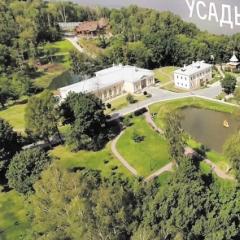Training of personnel for project implementation. Project staffing
The project is aimed at optimizing the model for training professional personnel in technical specialties to best meet business needs.
PROJECT TYPE
Educational
PROJECT TYPE
System
REVIEW STAGE
Support provided
Key system issues
- Labor productivity in blue-collar occupations in Russia is significantly lower than in the most developed countries world (in a number of industries, labor productivity in Russia is 15%-25% of the US level)
- Despite enough high level education, Russian workers do not have the practical skills necessary for domestic enterprises to compete in the global market
- At the same time, the quality of secondary vocational education continues to deteriorate, there is no effective vocational training
- Investors are not ready to come to regions where there is no labor force required level training and qualifications
Expected effects from implementation
- Promotion investment attractiveness regions of Russia through the training of workers who meet the requirements of high-tech industries based on dual education
- Redistribution of funding for corporate retraining programs in favor of the system public education-training
- A significant increase in the qualifications of workers and an increase in the prestige of blue-collar professions as a result of the development of new forms of education
Leadership projects underlying
1. Take note of the report of the director of the Agency for Strategic Initiatives in the direction of “Young Professionals” D.N. Peskov on the issue of the systemic project “Training of workers who meet the requirements of high-tech industries based on dual education.” 2. Approve the system project “Training of workers who meet the requirements of high-tech industries based on dual education” and the action plan for the implementation of the system project. 3. Recommend to the Ministry of Economic Development of Russia (A.V. Ulyukaev), the Ministry of Finance of Russia (A.G. Siluanov), the Ministry of Education and Science of Russia (D.V. Livanov), the Ministry of Labor of Russia (M.A. Topilin), the Ministry of Industry and Trade of Russia (D.V. Manturov), Rossotrudnichestvo (K.I. Kosachev) to consider the proposals of the Agency for Strategic Initiatives on this project.
Training for project management
Analyst at the Kazakhstan Center for Public-Private Partnership
Eva Akrachkova - Analyst at the Kazakhstan Center public-private partnership
Traditional functional (operational) business management, focused on managing established business processes, cannot cope with fast and significant changes, and investments are avoided by countries where the practice has not been introduced organizational management projects. The need to introduce the principles of project management in the public sector was identified long ago, but stagnation of personnel can lead to illness in the management system.
Today in Kazakhstan there is great demand for specialists in the field of project management. A significant number of project managers are involved in the development of certain products, implement information systems and manage a huge number of projects, portfolios of projects and programs.
For a long time, the State Classifier of Specialties of the Republic of Kazakhstan has included the specialty “Project Management”, and the Kazakh National Technical University named after. K.I. Satpayeva carries out training in this area both at the master's level and at the doctoral level since 2008 .
The need for high-quality and effective training of professional project managers is talked about not only in the academic sphere, but also real numbers. Only for the implementation of projects of the Address of the President of the Republic of Kazakhstan “Kazakhstan in the new global reality: growth, reforms, development” 7.5 trillion tenge , including 2.7 trillion tenge allocated to Kazakhstan by international financial institutions(MFO). Due to the need effective implementation projects, as well as increasing confidence in microfinance organizations, the demand for project specialists is growing in the labor market.
In the coming years, Kazakhstan will actively develop production focused on the export of final products, the agro-industrial sector, mechanical engineering, chemistry and metallurgy. Throughout recent years In Kazakhstan, specialized structures were created to support private businesses and promote their goods and services to world markets. We can say that all the macroeconomic prerequisites for the development of project management in Kazakhstan have already taken shape, and their relevance is justified by the tasks facing the state.
At the same time, the tasks facing project specialists are by no means simple, because project management is a complex discipline in which an extensive knowledge base and practical experience have been accumulated. The project manager must have the competence to manage the resource constraints of the project, must take into account all kinds of risks and be responsible for quality.
At the initiative of professional associations in Kazakhstan, a wide range of activities is being carried out to promote knowledge and experience in the field of project management. In order to improve vocational training project specialists with support domestic organizations and foreign consultants, professional business trainings, educational and consulting master classes and seminars are conducted, in which to date they have participated more than ten thousand heads and specialists of bodies public administration, national companies, small and medium-sized businesses in Kazakhstan.
However, on current moment more are required active actions to organize large-scale training of project managers in the country, both through leading universities and specially created centers for advanced training of working project managers. There is also an urgent question regarding the methods by which future project specialists will be trained. For a population of 16 million in Kazakhstan, several international and foreign standards governing the field of project management are simultaneously used. Whereas, for example, in China by 1.3 billion man acts one standard C-PMBOK.
It is important to understand that basic knowledge of project management standards allows you to manage a project regardless of the industry or the specifics of the organization. Therefore, having received a high-quality theoretical basis in the field of project management, you can safely expand the boundaries of employment, because such specialists are in demand everywhere .
In addition to high-quality theoretical knowledge, project managers must also improve personally, because the project manager is personally responsible for its results and therefore must be able to answer not only for his own actions, but also for the results of the work of the entire team. The project manager is often the only person who sees the project as a whole, so in order to make informed decisions, he must have systems thinking. At the same time, the project can be influenced by a number of factors, and the ability to quickly “fit in” to the changed reality is also inherent in a few.
It should be noted that the importance of professional project personnel is emphasized on the world stage. Thus, today the professional world community unites more than 500 thousand specialists in the field of project management. Project specialists are provided with work in almost all areas project activities in 185 countries of the world.
According to world experts today more than 25 million practitioners worldwide engaged in project-oriented activities to create new products and services. And according to some data, by the end of 2020, by the end of 2020, about 30% of the world budget or 45 trillion dollars .
Last time government bodies countries such as the UK, Japan, the USA and a number of others have established their requirements for the competencies of design specialists. For example, an ordinary American government employee must have skills in working with software project management. The U.S. Department of Defense requires a project management certification (PMP PMI) to be authorized to manage a project.
So, implementation project management will allow you to carry out change control in constantly changing conditions economic realities. The need to move to a qualitatively new stage of implementation modern methods management based on the latest achievements of management thought is confirmed by many experts, and more than once. However, to quickly and effectively implement project management, you need to study, study and study again...
Staffing should be planned as part of the project implementation tasks. If we are talking about attracting highly qualified specialists, then an incentive system should be thought out in relation to them. Proper compensation is only part of the acceptable incentives. The specialist reacts to working conditions, work schedule, ensuring independence in decision-making, and relationships in the team.
Optimizing staff readiness
When working to implement a social project, staff often experience pressure from the very beginning. different sides, he has to make extraordinary decisions and take risks. Every employee should be prepared for this.
Strict control over the readiness of personnel to work in conditions of constant risk will do little if it is not carried out personnel training.
IN major projects it is possible to implement the system personnel consulting. In this case, the consultant organizes the process of solving professional personnel problems and trains employees independent decision these problems.
Staff training. Methods: lectures, group discussion, mock situations, management games, outdoor learning, simulation, immersion learning, situational analysis.
The selection of training methods is determined by a triune task: developing the creative abilities of employees; strengthening their mental stability; developing their business skills.
Among the methods aimed at developing creative abilities and building business skills of employees, brainstorming, synectics, business games, creating focal objects and some others. In fact, they can be applied not only at the initial stage of work, since the creative and business components retain their importance at all stages life cycle social project.
Psychological stability - this is a holistic characteristic of a person in his relation to the stress impact difficult situations. It is obvious that many of social projects carried out in conditions where such circumstances are inevitable.
The general attitude of the project team towards the success of the business becomes the success of the entire business.
31. Monitoring the progress of the project
The implementation of the project is influenced by many external and internal factors, which leads to a change in the calculated planned parameters of the project. In these conditions, one of the most important means of achieving project goals is monitoring the implementation calendar plans and spending of funds.
Control is carried out on three aspects of project implementation:
1) time - the project must be completed within a certain period of time;
2) cost – budget must be met;
3) quality – must meet the required standards.
Control is divided into four stages:
1) monitoring and analysis of results;
2) comparison of achieved results with planned ones and identification of deviations
3) forecasting the consequences of the current situation;
4) corrective actions.
Depending on the required accuracy, technologies for assessing project performance are distinguished:
Control at the time of completion of work (method “0-100”);
control at the moment of 50 percent readiness of work (method “50-50)”);
control at predetermined points of the project (method of control “by milestones”);
regular operational control(at regular intervals);
expert assessment degree of completion of work and project readiness.
The situation with vocational education in Russia Labor productivity in blue-collar professions in Russia is significantly lower than in the most developed countries of the world (in a number of industries, labor productivity in Russia is 15%–25% of the US level*) Despite a fairly high level of education, Russian workers are not have the practical skills necessary for domestic enterprises to compete in the global market At the same time, the quality of secondary vocational education continues to deteriorate, there is a lack of effective vocational training Investors are not ready to come to regions that do not have a workforce with the required level of training and qualifications 2 *McKinsey Global Institute, “Effective Russia: Productivity as the Foundation for Growth,” 2009.

What is “dual education”? Dual education is a type of vocational education in which the practical part of the training takes place at the workplace, and the theoretical part - at the base educational organization The dual education system involves joint financing of training programs for a specific workplace commercial enterprises, interested in qualified personnel, and regional authorities interested in developing the economy and improving living standards in the region 3
Effects of the introduction of dual education Increasing the investment attractiveness of Russian regions through the training of workers who meet the requirements of high-tech industries on the basis of dual education. Redistribution of funding for corporate retraining programs in favor of the public education system - personnel training. A significant increase in the qualifications of workers and an increase in the prestige of blue-collar professions as a result of the development of new forms of education. 4
5 RussiaGermany* Government spending on initial vocational and secondary education vocational education 177.7 billion rubles. General expenses 30 billion per year for vocational education, of which 80% are business expenses. Number of NPO professions: 315. Number of vocational education specialties: nationally recognized professions. Number of students studying under NPO and SVE programs: 3002.7 thousand new company contracts provide training. Number of craftsmen industrial training: 29.1 thousand training masters and examination experts at the Chamber of Commerce and Industry. State expenditures on education per student per year: 20.7 thousand rubles. Expenses per student per year: *Germany is one of the leaders in the prevalence of dual education, as well as a country with one of the lowest unemployment rates in Europe among young people under 24 years of age (9.9%), Eurostat, Differences in models of Russian and German professional education

6 RussiaGermany The system of secondary vocational education is distant from production. Completely production-oriented vocational education. Almost one hundred percent funding comes from the state. 80% financing from company funds. A symbolic stipend is paid. During the training period, the employer also pays a decent stipend.

Goals of introducing the “dual education” model Improving the training model for working personnel, taking into account the real needs of the economy for qualified personnel to increase the investment attractiveness of the regions Development professional standards on current professions for business Development and modernization educational programs in accordance with the requirements of professional standards Change mandatory requirements to the organization and content of educational programs Development of a mechanism for independent assessment of the qualifications of workers Optimization of taxation in order to attract business to finance the training of workers 7

Necessary system changes at each stage of training The order is formed by the company for 5-10 years in advance. Discussed at the board of directors level in accordance with current state staff and development prospects of the company. Active career guidance work companies with schoolchildren, starting from junior classes(kindergartens), selection of applicants, including by level of technical thinking. The demographic situation in the region and the country is taken into account. The content of the curriculum is formed by the company. The company has ample opportunities to distribute volumes between disciplines within one specialty. Maximum production orientation. Most practical classes in the training center and workshops of the company. Teachers are experienced production workers. Academic training is separate from vocational training and is usually carried out on a dedicated day. From the first days, targeted work is carried out to develop creative skills, responsibility, teamwork, and leadership. The order is formed by allocating budget places in educational institutions by the state without taking into account the needs of companies in the region. Selection of students only according to the level of general educational knowledge (USE) and state (final) certification (GIA), since 2013, admission by application. Passive participation in working with applicants. Within the framework of the state educational standard, the possibility of reorientation in Russian system SPOs are quite broad. Education is divorced from production. Minimum practice time at the enterprise. Academic studies and vocational training are not separated in any way. A system of extracurricular work is used, preserved from Soviet times, and in no way oriented towards the future work of students. (is an accreditation indicator, a budget is allocated for extracurricular work) Formation of an order for recruitment and training, recruitment, recruitment of students Organization educational process Formation of the curriculum Extracurricular and educational work Current situation in Russia Best practice 8

The student is enrolled in the 1st year, clearly understanding in which place he will work; practice during training is completely focused on training and adaptation of the student at a specific workplace in a specific team (shift). In the workshops, the duties of a mentor are honorable and in demand. The quality of preparation is very high. After graduation, the student remains to work at the place of practice. Each graduate who has completed vocational training has opportunities for professional and career growth. Main evaluation criteria – high quality performing operations, mentoring, professional development. Training to obtain the title of master. Aimless recruitment of applicants. Neither the quantity nor the areas of training have been planned, nor, moreover, the specialization for the workplace. All educational institutions strive, due to economic expediency, to recruit as many students as possible, without paying attention to their personal qualities, abilities and the needs of enterprises. Minimum number of practical lessons. Places of internship are in no way related to future employment. Mentoring on the shop floor is either completely absent or of very low quality. College graduates do not have any planned or natural career growth. Much depends on the personal qualities of the graduate and the combination of circumstances. Practice, mentoring, employment Professional development and growth Current situation in Russia Best practice Necessary system changes at each stage of training 9




